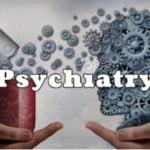Traditional psychiatry equates mental struggles to illness, which then equates to weakness. Mainstream psychiatrists have been in a rush to try to attribute all mental issues to genetic underpinnings and their neurological products. This approach provides insurance companies and Big Pharma a platform from which to profit. At the same time, to the great misfortune of many patients, these ideas have become culturally adapted as harmful stereotypes.
Starting at its foundation, today’s medical students are taught course after course about psychopathology, in which every condition, symptom, and subsequent medicated diagnosis is ingrained in their minds. They are taught to identify and group clusters of behavioral symptoms and assign a diagnosis rather than to understand normal developmental psychology. This practice is entirely counterintuitive, nonsensical, and results in positioned prejudices toward the human mind.
Developmental psychology explores our brains as the products not just of the foundation laid down by our genes, but, perhaps more importantly, by the environmental influences. These influences are particularly shaped through early human interaction that is continuously absorbed from birth and translated into new genetic expression.
Infants’ brains are incredibly plastic, meaning they are ready to incorporate, absorb, and process their environmental surroundings to create neuronal connections that allow them to make sense of their world. Though not yet able to produce or understand speech, infants are able to read facial expressions, pupil sizes, muscle tension, voice tones, and more with incredible expert ability. They then develop behaviors in concordance with and in reaction to these interpretations and influences, which are then stored in neurological connections.
The infant’s external connections and attachments therefore serve as the environment in which the nerves grow, while simultaneously also affecting the further genetic expression of future neural network blueprints.
In a concept called synaptic pruning, many unused or miswired connections are concurrently eliminated or altered depending on the infant’s interactions. This process continues throughout childhood during a constant interaction between the environment and neuronal reworking. The creation and elimination of connections therefore strengthens and refines memories, skills, interpersonal connections, and more.
As children age into adolescence and adulthood, important memories and mental processes become encoded neurologically. Let’s say, for example, that a child had been in an environment with an overstressed, angry parent given to abrupt expressions of frustration, irritation, or anger. One will encode these outbursts as memories through neuronal connections and will immediately be predisposed to misread triggers of facial expressions, voice tones, etc. into later childhood and adulthood. Consequently, similar actions of others in the future may trigger amplified angry, fearful, or guilty responses based on wired-in memories that may not even be consciously recalled. These reactions often occur instantaneously and beyond awareness of why and when.
It is widely known and proven beyond debate that the expression of characteristics - behaviorally, emotionally, and intellectually - are developed as a result of the environment interacting with genes. This is probably the most powerful example of epigenetic phenomenon in which millions of neurons make potentially trillions of attachments in complex networks, even beginning in utero. With this information, I approach my patients’ care using an epineuronal technique that explores the cyclical interaction between their environment, resulting neuronal connections, and ultimate psychological processing. It is crucial to understand that while our genes may provide our neural blueprint, they do not predetermine our future. It is our environment and how we react to it that most strongly influences our brain processing.
As professionals who work in psychotherapeutic realms, it is critical that we understand all of the nuances of individual development. Otherwise, we are at risk of minimizing, categorizing, or stereotyping what were once adaptive behaviors as mental illnesses. It is our responsibility therefore to help make our patients aware of how their brains are processing these individual moments and how they are reacting to them. In this epineuronal model, each individual is therefore seen as tethered by interferences, both internal and external, to allow them to fulfill and optimize their potential functioning.
This epineuronal understanding, rather than propagating mental states as illness or weakness, introduces a more open, accepting, and positive dialogue about mental health. This approach switches the paradigm for a patient and helps them deal with attendant shame, embarrassment, and other negative effects associated with self-introspection and acceptance of internal struggles. Instead, by supporting patients with a goal, and then the tools to attain agency with respect to mental health, we can provide them hope.
Working together with a patient to acknowledge and accept their obstacles is necessary, but we can approach it as something in which to adapt then transcend, therefore providing tools for their development and improvement. When we challenge our patients about the idea that the management of their mental states is part of performance achievement, they no longer have to feel broken or fragile, as cultural stereotypes surrounding mental illness perpetuate. Once we provide the tools - psychologically, physiologically, emotionally, and even spiritually - we create powerful unions with our patients. Establishing compassionate and caring attachments through an epineuronal approach is the bedrock to mental health treatment.
My goal is to help anyone who is suffering from a painful mental state or who wants to improve their mental performance. This will provide you strategies and tools to regulate your state of mind and to reach potentials that you’ve never thought possible. This is not the standard “mental illness subdued by medication” model of psychiatry. This is the essence of epineuronal performance psychiatry, and this is the future of mental health.








